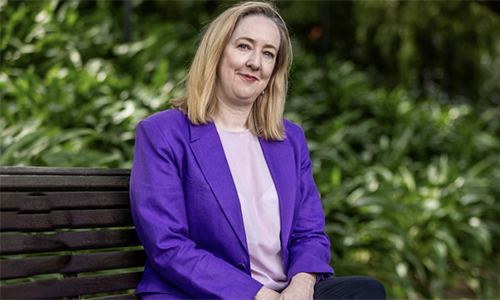Rachel Reeves wakes to a swathe of tricky front pages this morning after the Spring Statement in which the Office for Budgetary Responsibility (OBR) slashed next year’s growth forecasts. The Chancellor also announced extra welfare cuts in order to meet her fiscal rules. The verdict on the statement isn’t exactly positive, with Reeves facing criticism from both left and right. The Daily Mail brands Reeves ‘deluded’ and the Daily Telegraph warns of ‘five years of record taxes’. The Guardian splashes with ‘Reeves accused of balancing books at expense of the poor’ while the Financial Times says ‘Tax rise fears cloud Reeves’s fiscal fix’.
Reeves could take some small comfort from the fact the OBR scored her planning reforms highly (listen to the OBR’s David Miles discuss this on Coffee House Shots), but there is growing concern that the bad news is likely to keep coming. Labour MPs are seeing red over Reeves’s decision to add more welfare cuts at the last minute, which somewhat complicates Keir Starmer’s argument that this is a moral mission to get people back into work. The party’s MPs complain that Reeves is simply tinkering with the welfare system to satisfy the OBR. The publication of the welfare assessment has not helped matters, with Labour MPs taking fright at the suggestion that the changes will see 50,000 children fall into absolute poverty. Given many in the party cite tackling child poverty as a reason for getting into politics in the first place, some are threatening to rebel.
Aside from the immediate backlash, Reeves will be concerned about what may come next. While government whips are braced for a welfare rebellion, there is currently little expectation that the numbers would be anywhere near high enough to threaten Starmer’s large majority. The conversation is already moving to what Reeves could be forced to do next. As Donald Trump threatens more tariffs – this time on cars – there is the very real possibility that Reeves could once again find her £9.9 billion of ‘headroom’ against her fiscal rule wiped out. The OBR gave her a 51 per cent chance of avoiding this fate, which is rather tight.
Speaking this morning, the Chancellor disputed the idea that more spending cuts or tax rises were inevitable. Instead she talked up the importance of economic growth. But she also refused to rule either out. As the Institute for Fiscal Studies’ Paul Johnson puts it, Reeves slim headroom means there will now be ‘months of speculation about what taxes might or might not be increased’ at the autumn Budget. This is an uncomfortable position for a government that claimed its decisive election win would provide stability and certainty to business and voters.








